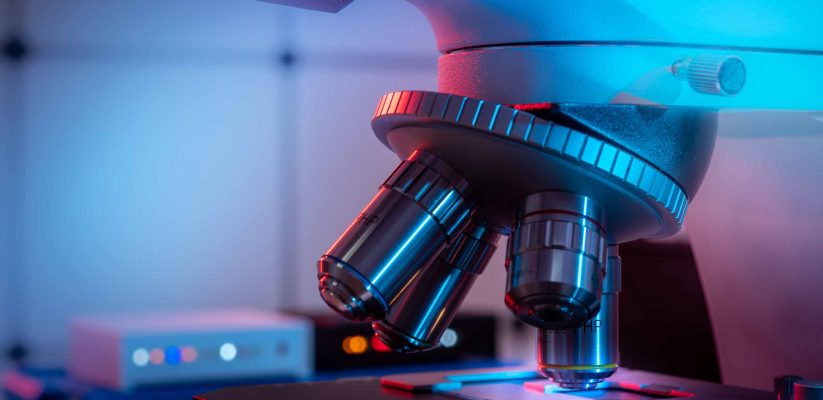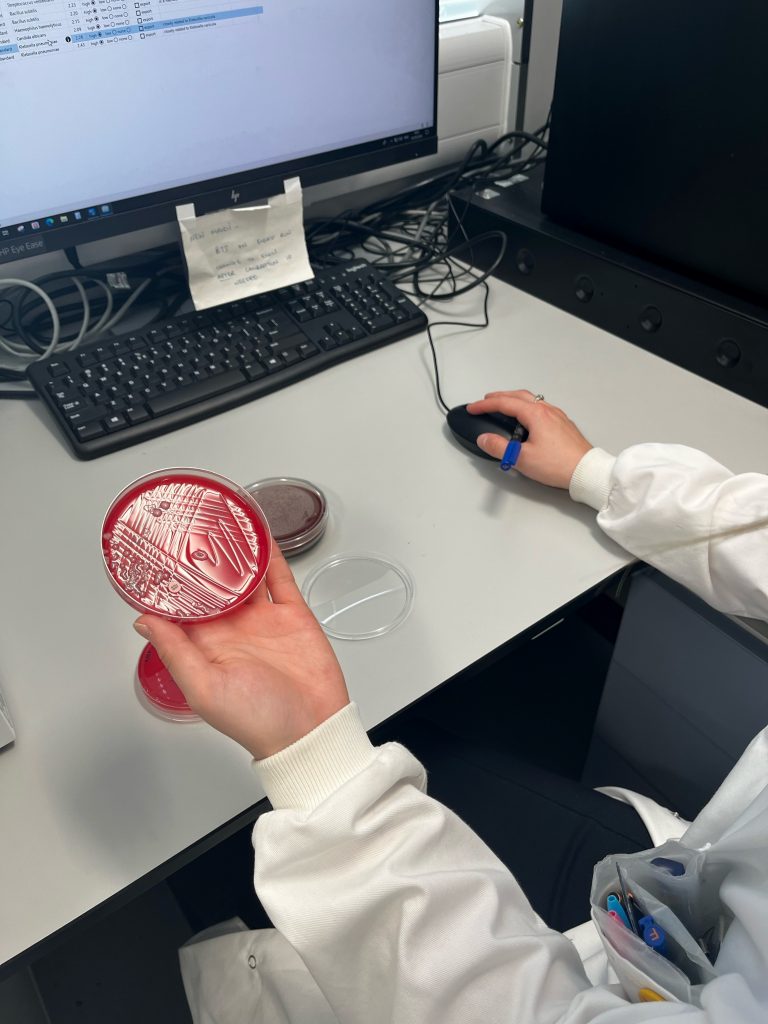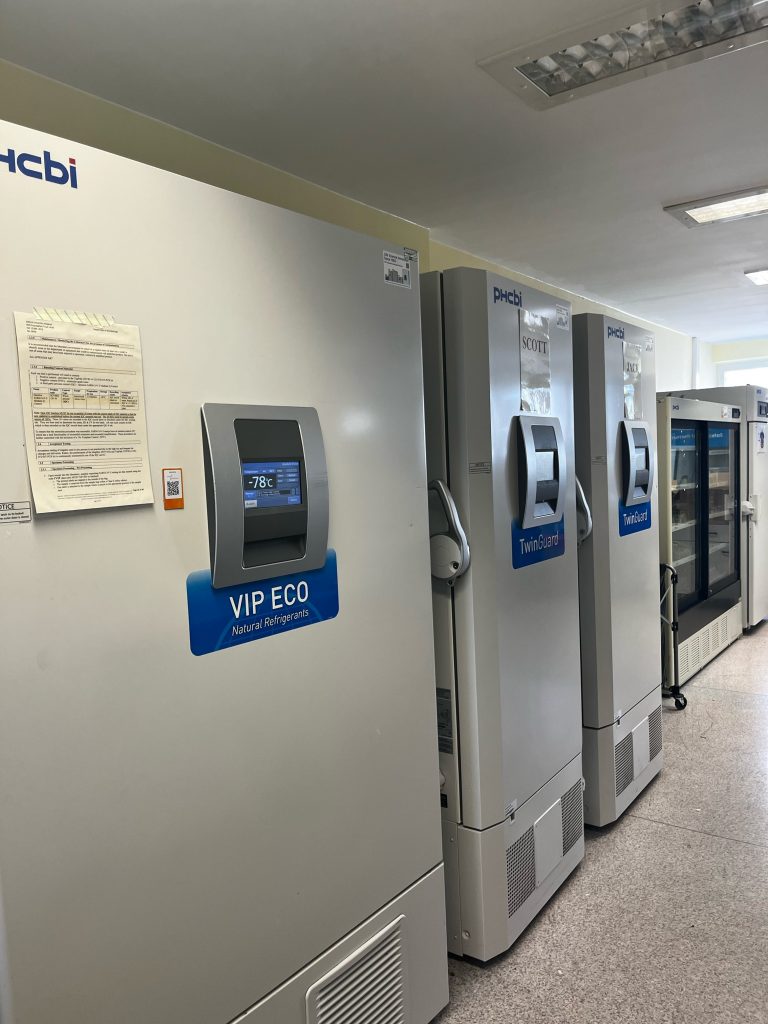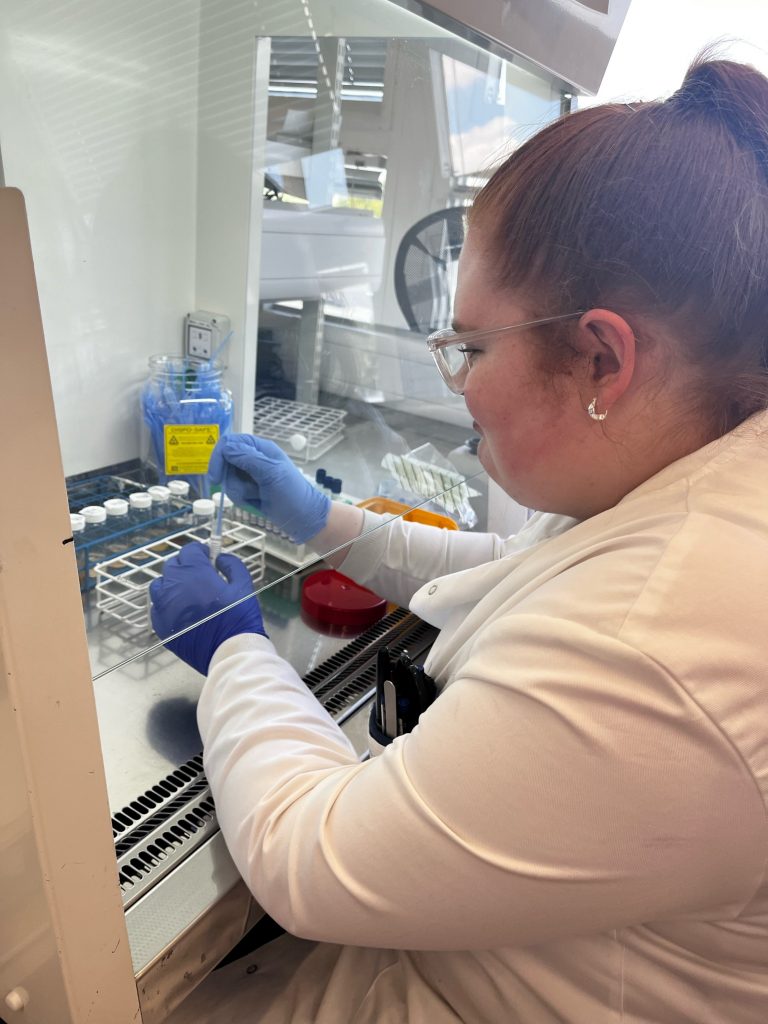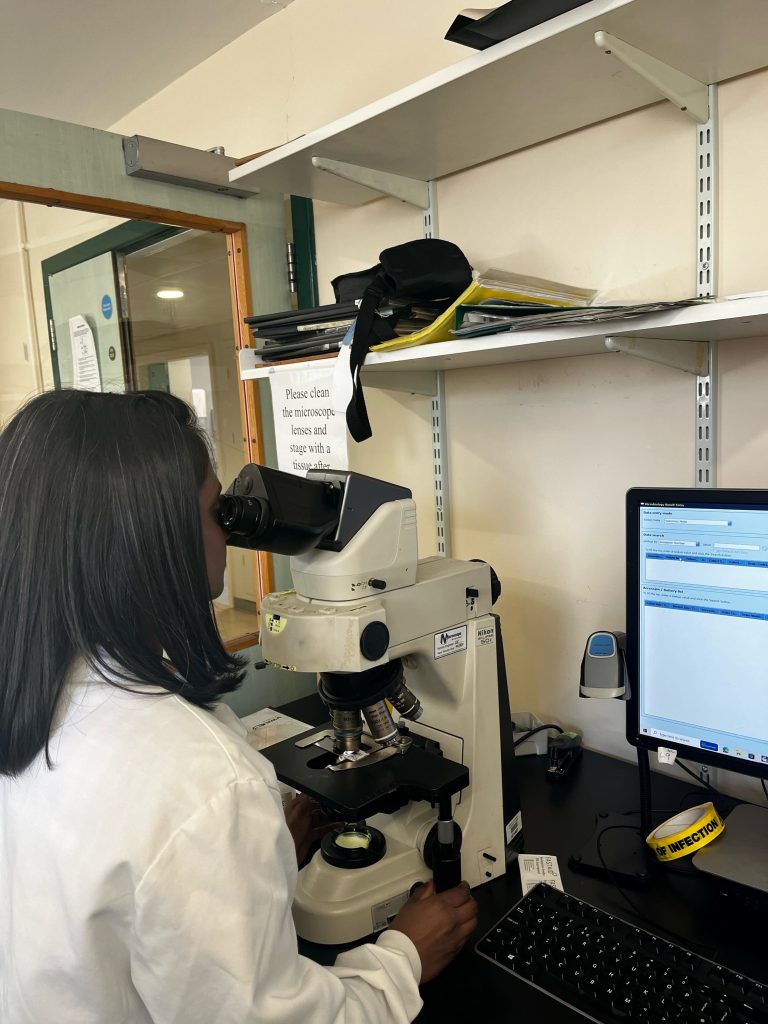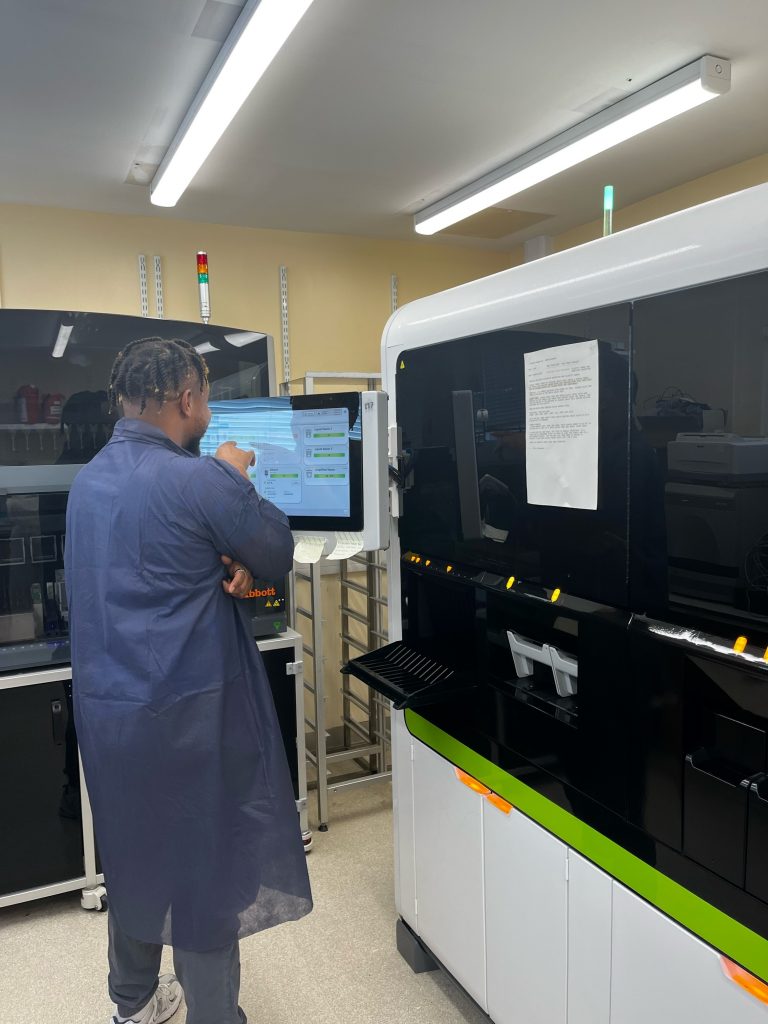Lucy Harold, Applied Biomedical Science BSc (Apprenticeship)
Embarking on a career as an Apprentice Biomedical Scientist in a microbiology lab is a journey filled with discovery, challenges, and the pursuit of scientific knowledge.
The day typically begins at 8 am. The first task of the day is to check the incubators and cultures that were initiated the previous day. Microbiologists are entrusted with identifying and analysing microorganisms, and a vital aspect of the work involves monitoring cultures for growth and observing any changes in characteristics.
After this, I will start processing incoming samples. Whether it’s blood, urine, or other bodily fluids, each specimen holds valuable information that could aid in diagnosing infections or diseases. We carefully follow established protocols to extract, culture, and prepare samples for further analysis.
The heart of the microbiology lab lies in its array of sophisticated equipment and techniques. We work with microscopes to identify and classify bacteria, viruses, and fungi. They employ staining methods, biochemical tests, and molecular techniques such as PCR (Polymerase Chain Reaction) to unravel the genetic makeup of microorganisms.
The lab is a space for individual work and a collaboration hub. Apprentices often discuss with experienced scientists, pathologists, and fellow apprentices. This exchange of ideas fosters a dynamic learning environment where knowledge is shared, and skills are honed.
Amid the bustling lab environment, there is a palpable sense of excitement and purpose. No matter how routine, every task holds the potential to uncover something new and significant. As an apprentice, I am acutely aware of the responsibility of handling these samples. Each specimen represents a patient whose well-being may rely on the accuracy of our analysis.
As the day progresses, apprentices seize opportunities for continuous learning. We attend workshops, seminars, and training sessions to stay abreast of the latest developments in microbiology. Keeping up with technological advancements and research methodologies is crucial for providing cutting-edge healthcare solutions.
The collaborative nature of the laboratory environment fosters a sense of camaraderie among colleagues, and teamwork is an essential skill in the lab. I’ve come to appreciate the diverse perspectives and expertise that everyone brings to the table.
My day is a journey marked by intellectual curiosity, attention to detail, and a commitment to advancing healthcare. From the processing of samples to the final documentation of results, each step contributes to the collective effort of unravelling the mysteries of microorganisms and improving diagnostic capabilities.
About Westminster
As one of the most diverse universities in the UK, we are a global university with London energy, with more than 19,000 students from 169 countries. Visit our website to find out more about our Biological and Biomedical Sciences courses.
